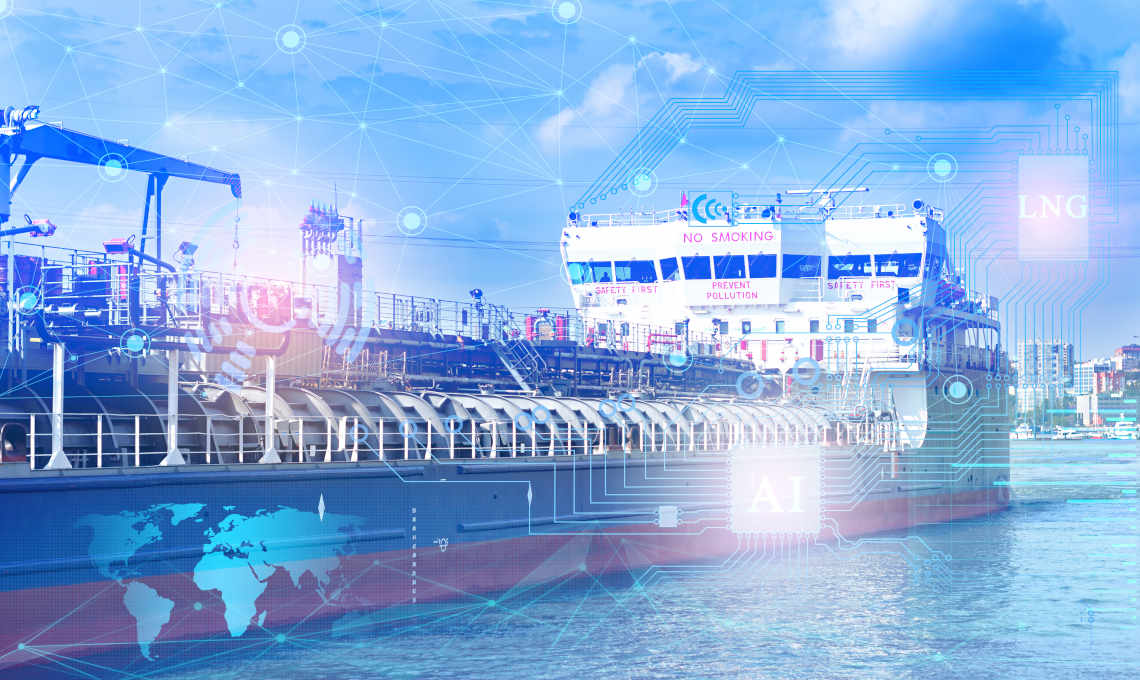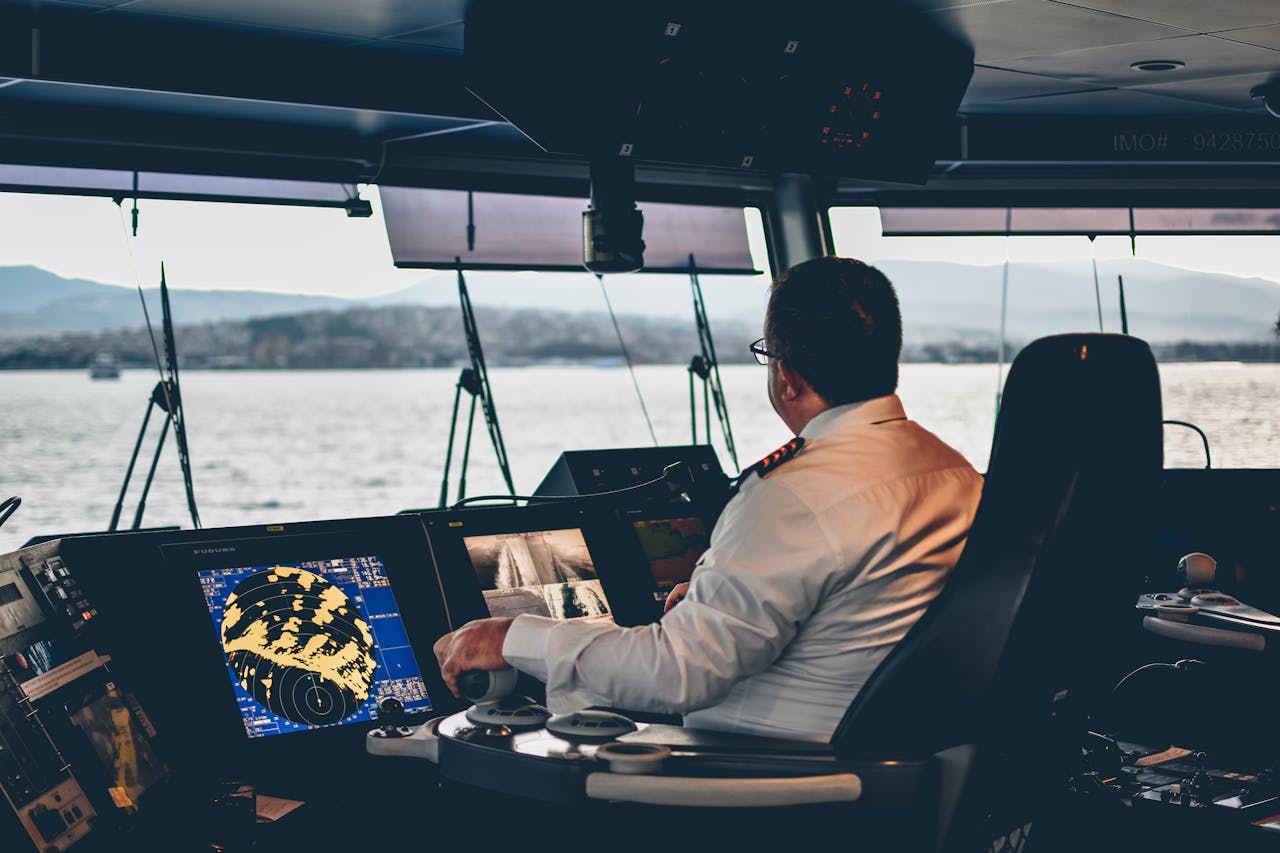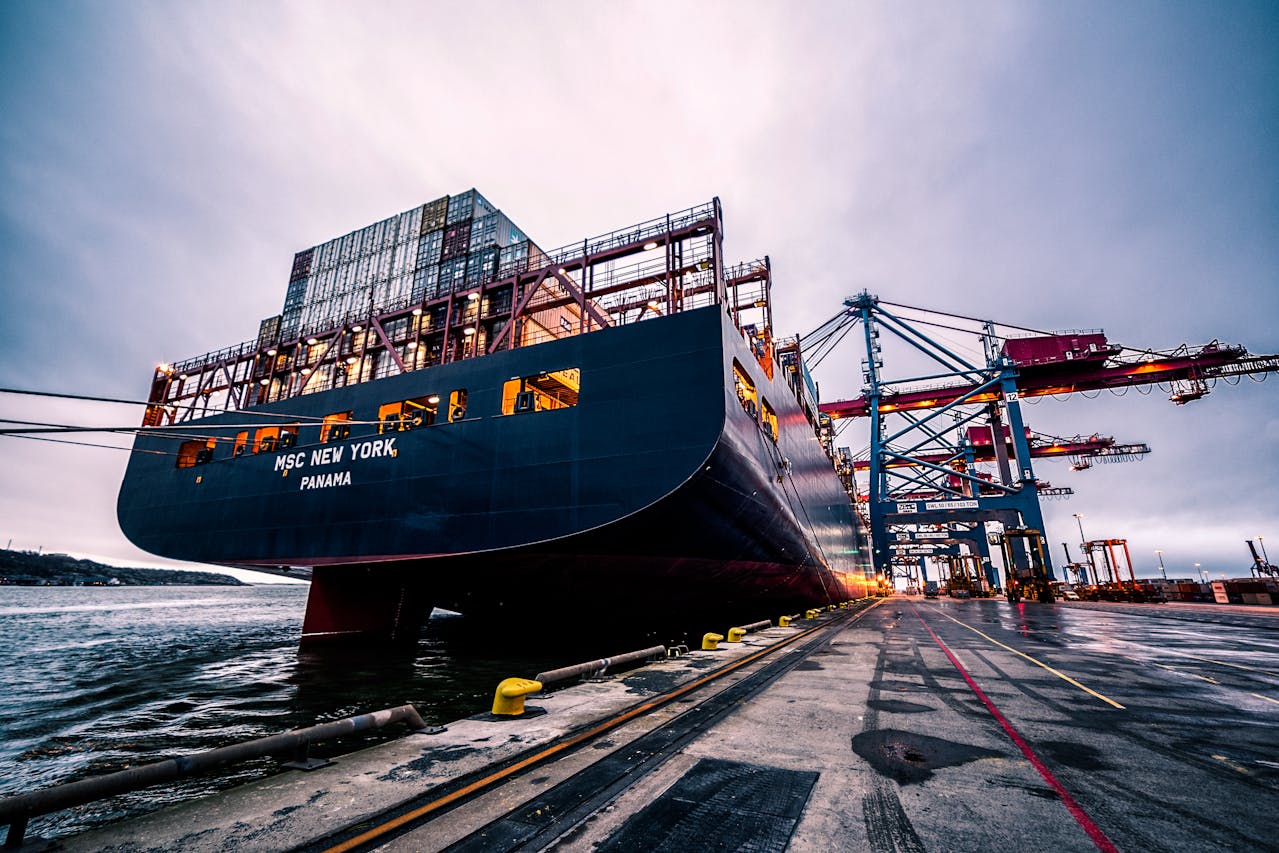海事自動化與人工智慧諮詢

As the maritime sector navigates through the troubled waters of global trade, environmental challenges, and operational efficiency, integrating state-of-the-art automation and AI technologies is necessary.
That’s why maritime automation and artificial intelligence consulting are revolutionizing this age-old industry, offering solutions that promise to transform traditional maritime operations into smarter, safer, and more efficient systems.
Understanding Maritime Automation and Artificial Intelligence Consulting and Its Importance
Maritime automation and artificial intelligence consulting aim to transform traditional maritime processes, addressing navigation, shipping logistics, port operations, and environmental conservation challenges.
It provides ways to optimize operations, reduce transit times, and improve turnaround. Maritime automation and artificial intelligence consulting also help companies face the maritime industry’s inherent risks, from navigation hazards to operational safety concerns. Moreover, the industry operates in a highly competitive environment where cost management is key to profitability. Maritime automation and artificial intelligence consulting help reduce operational costs through improved fuel efficiency, predictive maintenance, and optimized logistics.
How Do Maritime Automation and Artificial Intelligence Consulting Differ from Traditional Market Research

Traditional 市場研究 in the maritime sector typically involves studying market trends, consumer behavior, competition, and pricing strategies. In contrast, maritime automation and AI consulting focus on operational aspects, leveraging technology to optimize maritime processes and operations.
Furthermore, traditional market research analyzes customer and market data, while maritime AI consulting dives into operational data, such as shipping routes, port operations, and vessel performance, to streamline and enhance maritime logistics.
Maritime AI consulting aims to create a more efficient, safe, and sustainable maritime operation. In contrast, market research aims to understand market dynamics and customer preferences to inform business strategies.
Key Success Factors in Maritime Automation and Artificial Intelligence Consulting
Achieving success in maritime automation and artificial intelligence consulting requires a strategic approach and attention to several elements. These factors are crucial in ensuring the effective integration and application of AI and automation technologies in the maritime sector:
- Alignment with Industry Needs: Solutions must align with the specific needs and challenges of the maritime industry, including operational efficiency, safety requirements, and environmental regulations.
- Data Accuracy and Quality: The effectiveness of AI solutions is heavily reliant on the quality and accuracy of the data used. Ensuring access to reliable and comprehensive maritime data is essential.
- Customized Technological Solutions: Given the diversity in maritime operations, customized solutions that cater to the specific needs of each operation are critical for success.
- Emphasis on Security and Privacy: Protecting the security and privacy of data in AI systems is essential, particularly given the sensitivity of maritime operational data.
- 風險管理: Identifying and managing potential risks associated with the implementation of AI and automation in maritime operations is crucial to avoid disruptions.
What Can Companies Expect from Maritime Automation and Artificial Intelligence Consulting?
Engaging in maritime automation and artificial intelligence consulting can yield transformative results for maritime businesses – and here are some key expectations and outcomes that can be anticipated from such consulting endeavors:
- 節省成本: Maritime automation and artificial intelligence consulting can significantly help businesses reduce operational costs by optimizing fuel consumption, improving route planning, and reducing manual labor.
- 永續性改進: AI can help in developing more sustainable maritime practices, such as optimizing voyages for fuel efficiency and monitoring environmental impact.
- 監理合規性: Maritime automation and artificial intelligence consulting can assist in ensuring compliance with maritime regulations, reducing the risk of violations and penalties.
- 競爭優勢: By leveraging the latest technologies in maritime operations, businesses can gain a competitive edge through improved service offerings and operational excellence.
- 創新商業模式: The integration of these technologies opens opportunities for new and innovative business models in the maritime sector, such as autonomous shipping and advanced logistics services.
Technologies and Tools

Maritime automation and artificial intelligence consulting leverages a range of sophisticated technologies and tools designed to enhance various aspects of maritime operations. These technologies are integral to driving efficiency, safety, and sustainability in the maritime sector. Some of the key technologies and tools are as follows:
- Autonomous Vessel Technology: Technologies enabling autonomous navigation of vessels are at the forefront, with companies like Rolls-Royce and Kongsberg Maritime developing systems for unmanned ship operations.
- 物聯網 (IoT) 設備: IoT sensors on ships and in ports collect real-time data, enabling better tracking, monitoring, and management of maritime operations.
- Satellite and Geospatial Technologies: Satellite communication technologies and geospatial tools are used for navigation, monitoring, and ensuring constant communication with vessels.
- Blockchain for Supply Chain Transparency: Blockchain technology is used for enhancing transparency and security in maritime logistics and supply chain management.
- Advanced Data Analytics Software: Software like SAS and Tableau is employed for in-depth analysis and visualization of maritime data, aiding in decision-making processes.
機會與挑戰
The integration of automation and artificial intelligence in maritime consulting presents both significant opportunities and notable challenges for the industry. Here’s a look at what these entail:
機會
- 節省成本: By optimizing routes, enhancing predictive maintenance, and reducing manual labor, maritime operations can achieve considerable cost reductions.
- Safety Improvements: AI-driven predictive analytics and automation technologies can enhance safety by predicting potential hazards and improving navigational accuracy.
- Innovative Service Models: Maritime automation and artificial intelligence consulting can lead to new business models and services in the maritime industry, enhancing competitiveness.
挑戰
- 網路安全風險: Increased reliance on digital systems elevates the risk of cyberattacks, which can have severe implications for maritime operations.
- Workforce Transition: The shift toward automation may create workforce displacement, necessitating strategies for retraining and job reallocation.
- Technology Reliability and Trust: Building trust in AI systems, particularly in high-stakes maritime operations, is crucial yet challenging.
未來展望

The future of maritime automation and artificial intelligence consulting is full of opportunities – and here are some key trends and developments that are likely to influence the future direction of this field:
- Integration of IoT Technologies: The Internet of Things (IoT) will play a larger role in maritime operations, with sensors providing real-time data for better decision-making and operational management.
- Sustainable Maritime Practices: There will be a heightened focus on sustainability, with AI and automation technologies being used to minimize environmental impact and support eco-friendly maritime operations.
- Enhanced Port Automation: Automated port technologies will become more sophisticated, enabling faster loading and unloading, efficient cargo handling, and improved port logistics.
- Data-Driven Customization: AI will enable more tailored and optimized solutions for maritime operations, catering to specific needs and challenges.
SIS Solutions: Maritime Automation and Artificial Intelligence Consulting
We provide transformative solutions for the maritime industry by integrating state-of-the-art automation and AI technologies. Our strategic analyses aim to optimize maritime operations, making them smarter, safer, and more efficient. We focus on turning information into actionable insights, considering maritime automation and AI with a comprehensive market view. Our solutions are tailored to address navigation, shipping logistics, port operations, and environmental conservation challenges.
- Customized Technological Solutions
- Data Accuracy and Quality
- Alignment with Industry Needs
- 風險管理
- Emphasis on Security and Privacy
- Cost Savings and Operational Efficiency
- Regulatory Compliance and Competitive Advantage
Our extensive network of industry specialists and strategic focus enables SIS to provide deep insights into maritime automation and AI, leveraging the latest technologies and working closely with our global offices.
我們在紐約的工廠位置
11 E 22nd Street, Floor 2, 紐約, NY 10010 電話:+1(212) 505-6805
關於 SIS 國際
SIS國際 提供定量、定性和策略研究。我們為決策提供數據、工具、策略、報告和見解。我們也進行訪談、調查、焦點小組和其他市場研究方法和途徑。 聯絡我們 為您的下一個市場研究項目。


